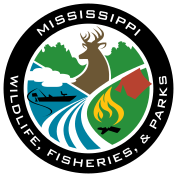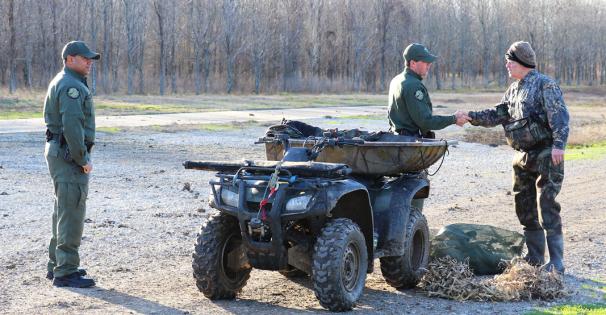
- Except landowners trapping on land deeded in their name are not required to be licensed. This license shall also be required of each assistant or helper 16 years of age or older employed or used by a trapper.
- Trappers are required to have an identification number, which is issued by and registered with the Mississippi Department of Wildlife, Fisheries, & Parks (MDWFP), attached to all traps by a metal tag or permanently inscribed, etched, or stamped on the trap.
- The identification number shall be the MDWFP Customer Number located on
each trapper's hunting or trapping license. Except persons having been issued a "Trapper ID Number" prior to July 1, 2012, may use either their MDWFP Customer ID Number or their previous Trapper ID Number. Any trap found without a registered identification number will be in violation and subject to removal by a conservation officer.- A person exempt from purchasing a trapping license must tag or permanently inscribe any trap with his name, phone number, and address.
- The conservation officer may take up any traps not properly marked.
- Every trapper shall visit his traps at least every thirty-six (36) hours.
- Except as otherwise provided, no person shall place or set a trap on or within one hundred (100) feet of any street or public road. Public roads shall not be construed to mean public waterways.
- A licensed trapper or resident under sixteen (16) years of age shall be allowed to trap fur-bearing animals during trapping season, and sell or consign the raw fur, green pelts and dried pelts of fur-bearing and nuisance animals during the trapping season and for thirty (30) days after the close of the season. Only a licensed trapper or resident under sixteen (16) years of age may sell or consign the raw fur, green pelts and dried pelts of fur-bearing nuisance animals.
